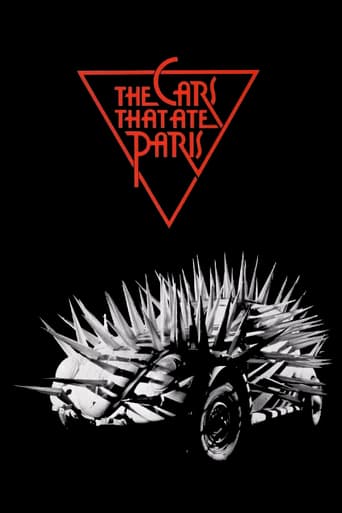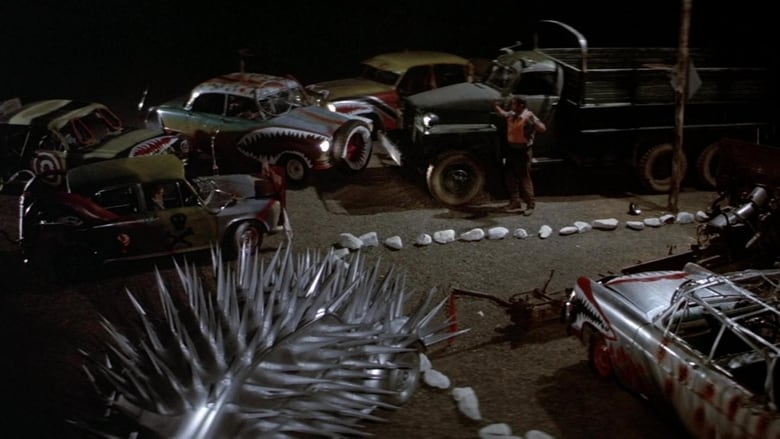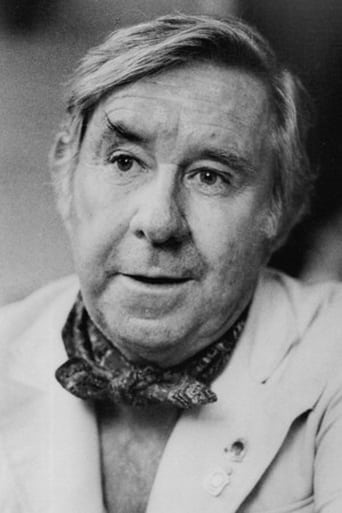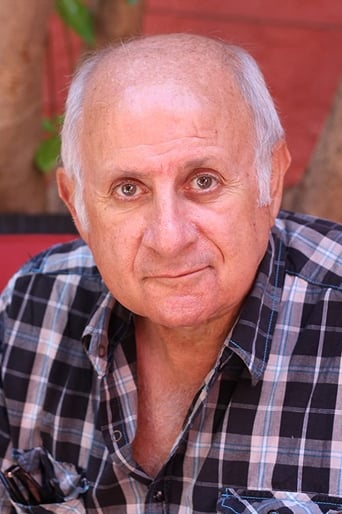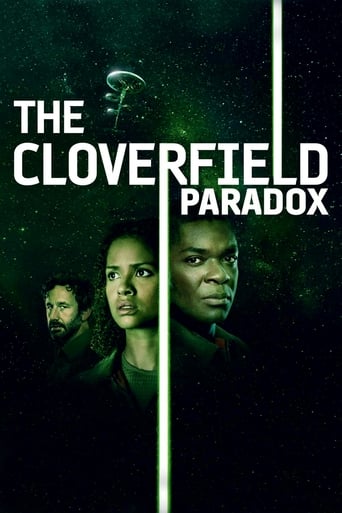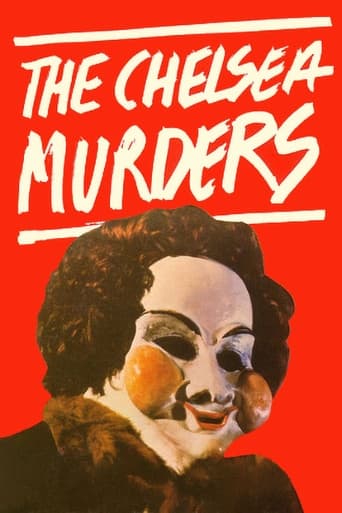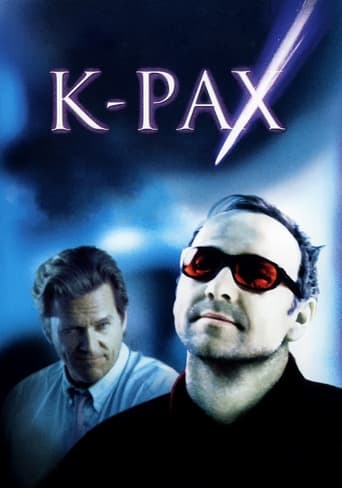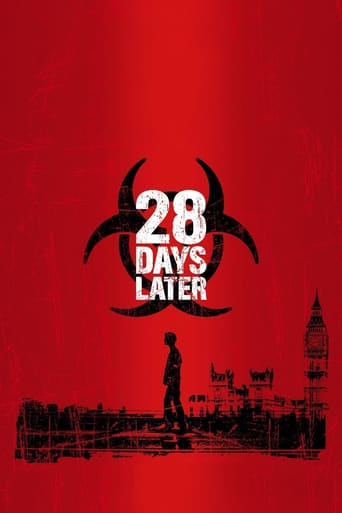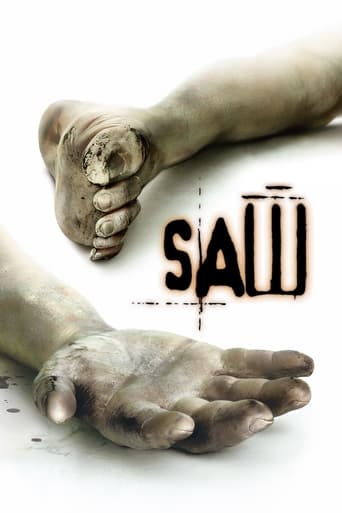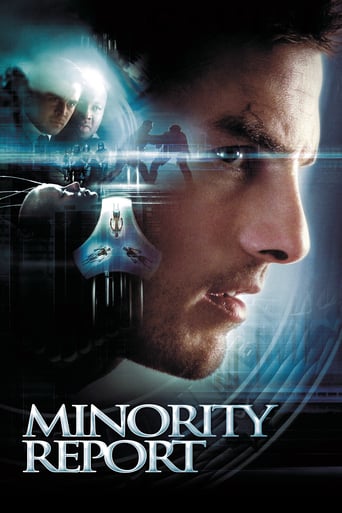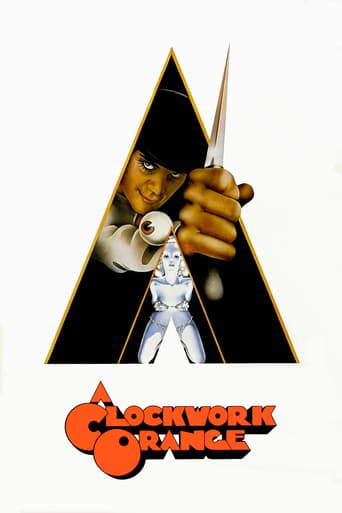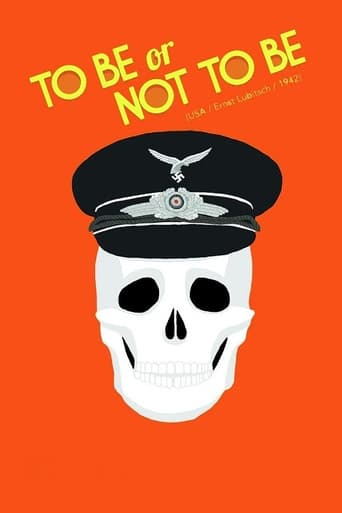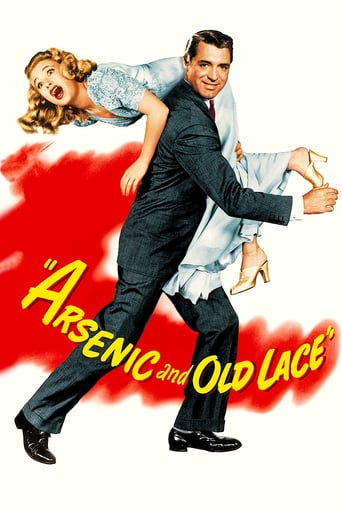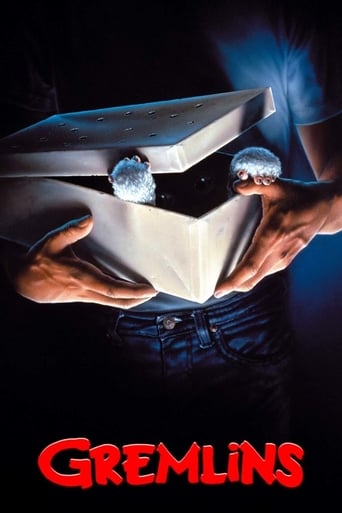The Cars That Ate Paris (1976)
After the death of his brother on the road, unemployed and unstable drifter Arthur Waldo stays for a while in the rural Australian town of Paris as the guest of the mayor, who hopes he will become a permanent member of the Paris population. Arthur soon realizes the quaint hamlet has a sinister secret: they orchestrate car accidents and rob the victims. Survivors are brought to the local hospital, lobotomized, and used for a local doctor's experiments.
Watch Trailer
Free Trial Channels
Cast


Similar titles
Reviews
Fantastic!
It's hard to see any effort in the film. There's no comedy to speak of, no real drama and, worst of all.
Yes, absolutely, there is fun to be had, as well as many, many things to go boom, all amid an atmospheric urban jungle.
Great movie. Not sure what people expected but I found it highly entertaining.
Pulling quite a switcheroo on audiences, The Cars That Ate Paris is a film that it is best to be clear about before viewing. This emphatically isn't a crazed barrage of vehicular madness, nor is it set in France. With the goods that the title foretells kept mostly to the final 15 minutes, this is mostly a humorously macabre look at a strange community, an isolated Australian town where mans relationship with the automobile has left what passes for humanity in very much a subservient role. Our nominal hero is Arthur Waldo, survivor of a car crash that kills his brother and newcomer to the quiet community of Paris, whose mayor takes a shine to him. Arthur unfortunately is afraid of cars though, especially where accidents are involved, and his worries begin to get the best of him, not ideal in a place whose economy and source of new citizens comes from cars and car accidents. Plus the youth of Paris are getting restless With a passive hero and minimal exposition director Peter Weir creates a fascinating and at times disturbing tale, he shows the audience enough to grasp the situation whilst leaving them plenty of intriguing blanks to fill in. He has a great eye for the town, unhurried shots capture neat exteriors, scenes are often largely still and uncluttered, townsfolk quietly going about their business, the presentation gives an ordinary feel that renders the emphasis on cars all the more alluringly strange. We see men, women and children involved, there is a minimum of "regular" conversation, people passing the time of day and such, the whole place is portrayed in powerfully off-balance yet mostly subtle fashion, enhanced by the frequent glimpses or outright gazes at the beautiful surrounding landscape or the sky above. There is some idea of why the town is the way it is from its isolation, but in such a wonderful place, the dark turn they have taken is all the more unsettling. Equally effective if not so detailed treatment is given to the characters here, though most tend to pop in and out without great screen time they make an impression and importantly, come across as organic to the setting. There's Arthur, played dazed and confused by Terry Camilleri, rolling with the punches of his situation, making the best of things whilst conveying constant disturbance, not the most sympathetic of protagonists but does a good job of keeping the audience on their toes. He also handles his personal arc rather well, giving the climax quite a punch. Then there's sinister and mysterious Dr. Midland, creepily essayed by Kevin Miles and Bruce Spence as the aggressive and gallows humoured Charlie. Best of all is The Mayor, a terrific turn from John Meillon. Smoothly menacing, Meillon channels all notions of cheerfully malign authority figures into one outback gentleman, electric stuff and the films greatest boon. The film perhaps lacks a little in forward momentum, scenes pile on top of each other and the course of things is a little random, a little arbitrary. Also, in taking the oblique approach to its goings on the film collects up a number of interesting themes and ideas that aren't really explored to their best advantage. Still, I found this to be a near constantly interesting, often unsettling and ultimately powerful work, well recommended to fans of Australian and cult cinema.
The people of a small Australian village deliberately cause car accidents for out-of-towners passing through so they can profit from looting. One victim survives and the community tries to make him a member, but he unintentionally rekindles what appears to be a feud between the elders and the car-loving youths. Whoa. Huh? What? Right. The Netflix envelope said this was a satire about how much Australians are obsessed with cars (?) and a review I read implied that this film is a metaphor for New Nationalism in the 70s (??) All of that flew over my head. Still I can't say I didn't like Peter Weir's first film, and it works as a decent slow-burn horror. Also, some of the designs on the rebel youth cars were damn nifty.
Peter Weir made his directorial debut with this truly bizarre and unique blackly humorous multi-genre pastiche that's a compellingly novel and singular blend of horror, Western and sci-fi conventions mixed together into a jarringly offbeat whole.A pleasant, mild-mannered American tourist (a sweetly amiable performance by Terry Camilleri) finds himself trapped in a remote backwoods Australian hamlet after he narrowly survives a car crash. The naive, gullible yank soon discovers that things are not exactly quite right and okay in the deceptively sleepy burg. For starters, that car crash wasn't an accident; it was deliberately staged by the resourceful and enterprising townspeople who eke out a living by salvaging car parts from wrecked vehicles. Then there's a resident mad scientist who's fond of experimenting on car crash survivors, turning the hapless folks into mute lobotomized imbeciles called "veggies." And the local drag-racing teenage hooligans are getting increasingly out of control, carousing about in their lethal, garishly made-up cars (one sports spikes all along its body like a porcupine!) until the wee hours of the morning and making a real nuisance of themselves. The town's friendly, but ineffectual mayor (winningly played by John Mellion) offers Camilleri the plum job of parking superintendent in a desperate attempt to restore law and order.The quirky, imaginative script by Weir, Keith Gow and Piers David ingeniously uses the oddball premise as an ideal springboard for barbed social commentary on the perils of cross country traveling, the very modern dangers the automobile poses to quiet everyday life, how isolated communities cut off from the rest of civilization can easily degenerate into barbarism and lawlessness, the extreme measures impoverished people will resort to in order to get by in life, and even a wacky generation gap conflict pitting uptight, disciplined, morally rigid adults against rowdy, uninhibited nihilist youth. Weirs' direction is precariously pitched between the grimly horrific and the darkly facetious, boldly maintaining an uneasy tone which keeps the viewer constantly off guard and gives the irregular proceedings a potently unsettling weirded-out edge. John McLean's grainy, luridly grungy cinematography allows the Australian outback to take on a scary, nightmarishly surreal aura while Bruce Smeaton's sometimes dissonant, more often strangely jaunty rock-tinged score adds substantially to the pervasively unnerving nuttiness. An authentically grotesque and intriguing one-of-a-kind curio.
This truly odd and eccentric black comedy is especially worth checking out in order to notice how drastically Peter Weir's filming style changed from dared and out-of-the-ordinary cult in the 1970's to dull and politically correct rubbish in the 1980's, 1990's and 2000's. No matter how popular and acclaimed films like "Dead Poets Society", "Master & Commander" and "The Truman Show" are, they're blunt compared to the uniqueness and virility of "The Cars that Ate Paris". At least this film doesn't feature tiresome morality speeches and here the dialogues are, in fact, surprisingly controversial most of the time. For example; when explaining to total strangers that you accidentally killed a old man by accidentally running your car over him, do you expect them to reply with: "Yeah, those old pedestrians are a real problem, aren't they?" Welcome to Paris; a remote little outback Australian town where the people go to church, love their families and where the economy entirely thrives on one thing: car crashes! The whole town assists in deliberately causing accidents and then use the parts and accessories as currency to buy stuff in the shops. The outsiders from the accidents either end up in the graveyard, as medical guinea pigs in the local hospital or as in protagonist Arthur Waldo's case as brand new residents of Paris and close friends to the mayor. It's truly close to brilliant how Peter Weir manages to sustain the friendly and nonthreatening tone throughout the whole movie. All members of the community are basically insane psychopaths, yet you symphatize with them a lot more because the "hero" (Arthur) is such an antipathetic loser and the young generation (that eventually revolts against the town's ancient habits) are boisterous and uncanny freaks. Even the mayor, who's really the evil mastermind, is portrayed like a jolly figure with whom you'd love to chat. I know that most people wish to forget their viewing of "The Cars that Ate Paris" because it moves slow and looks dark, but the basic premise really is one of the best horror ideas ever coming from Australian cinema. And that WV Beetle covered in spikes is a highly memorable piece of scenery!

